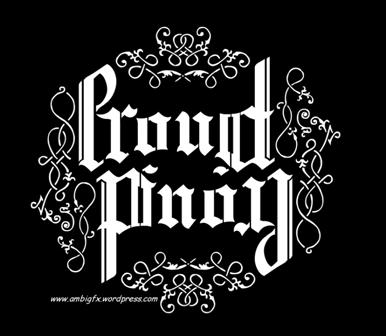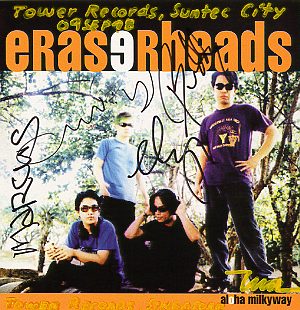 they say chocolates are aphrodisiac. if you'll ask why a lover gives you a whole box, then at least now you know.
they say chocolates are aphrodisiac. if you'll ask why a lover gives you a whole box, then at least now you know. 
a part-"Como Agua Para Chocolate" (Like Water for Chocolate) and part-"Dream of a Ridiculous Man", this screenplay of Joanne Harris's novel, "Chocolat" unleashes the roughness and sweetness of life through the story of an unmarried mother, Vianne Rocher (Juliette Binoche), whose wanderlust has blown her into a traditional French village set in a bygone era of innocence and simplicity, inadvertently awakening its sleeping desires and passion. by putting up a chocolate shop across the church, she found herself at the center of gossips as the neighborhood becomes curious of her resistance to follow the norms, as well as her refusal to attend mass.
traveling with her dead mother's ashes, Vianne darted into the lives of religious and conservative villagers who are either long-repressed or faithfully trying to keep up with the collectively-accepted form of morality, dictated by Comte Paul, the village head. played by Alfred Molina, 2005 MTV Movie Awards for Best Villain nominee for his portrayal of Doc Ock in Spiderman 2, the ever righteous and reserve Comte Paul, who's muddled by his own busted-up family affairs and constrained by the limits of what he knew was best for everyone, would do anything to keep the village's inherited pattern of thought, as he makes a slick villain of himself through exercising authoritative control over their new young parish priest, Pierre Henri (Hugh O'Conor), taking part as far as to edit or even write his sermons, and urging people to despise the threatening influence of the radical Vianne. people are compelled to confess and repent for the slightest offense, and even for their so-called "too much indulgence" in chocolates, as if it would contaminate their spirits.
the way the churchgoers passively abide by their traditional guiding principles reminds us of the dear Miss Maudie Atkinson in Harper Lee's "To Kill a Mockingbird" as she recounts to Scout Finch her observations of how people seem to live in a circus: "There are just some kind of men who - who're so busy worrying about the next world they've never learned to live in this one, and you can look down the street and see the results."
when Roux (the demigod Johnny Depp) and other gypsies—otherwise called pirates—sailed into the rivers of the village and found a good spot in its banks, Vianne forged friendship with them, which exasperated the comte and the townspeople. their ire called forth a protest against her and her chocolateria, as summarized in a pretext of the comte's ordinance, "Boycott Immorality." Roux, the only person whom Vianne fails to guess his favorite chocolate, offered to repair the chocolate shop's door, which is expressive of shielding Vianne from the persistent unjustified criticisms of the people who are reluctant to accept changes and new ideas.
as for me (yup, that's right, FOR ME; don't protest), any movie with Johnny Depp in it is a good film, though there was not enough of him in this story. working again with Director Lasse Hallstrom after "What's Eating Gilbert Grape", Depp exuded his distinguishing trait as an actor once more in this poetic story of people seeking acceptance and a sense of normality.
aside from the use of food as symbolic imagery, the story partly resembles "Como Agua Para Chocolate" in terms of magic realism, although in this movie, it is very lightly unfolded. at the same rate, Dostoyevsky's short story only does affect the screenplay throughout the entire extent of self-liberation. a traffic of thoughts is revealed to one's judgment, bordering feminism and Christianity.
"Chocolat" oozes in fragrance and sweetness with every delicate scene of melting and molding chocolates, and at the same time, this concoction of sweet tales about individuality, family, and coexistence has a fairy tale look and feel, and is narrated on a light, enchanting note. the peculiar thing about this, though, is the tralatitious spreading of chocolate syrup on every dish, as seen on the birthday of Vianne's landlady, who later on became her friend. spending the rest of the party on a decadent evening of dance at Roux's boat—a pre-taste of the fertility feast on the coming Easter Sunday—is not surprisingly bothersome for the comte and his followers, and which they also find extremely immoral. the viewer soon learns how strong his words impact his subordinates. however, in the attempt to topple down the chocolateria, the comte finds himself caught in a dilemma of his own cynicism and blinded by the same idea he is selling.
and although Vianne was only brought to that land by a sly northern wind, bearing her mother's kismet, dispensing ancient cacao remedies and traveling forever with the wind, she finds her roots in the village in an enchanting tale of standing up for one's belief and finally, the glorious feeling of being released.
"I think that we can't go around... measuring our goodness by what we don't do. By what we deny ourselves, what we resist, and who we exclude. I think... we've got to measure goodness by what we embrace, what we create... and who we include."- Pierre Henri
oftentimes, a movie with what seems to be a simple plot on the surface turns out to be something wonderful, and it's amazing how people can make sense so deep and philosophical with the use of sweet little things like chocolates. four out five stars for "Chocolat"!
*photo from The Reader's Eye
*my god, this has 913 words in it, and this is not required! (longer than what i passed in our Reviews class. haha!) :p
*oh well, i'm soooooooo bored...

















No comments:
Post a Comment